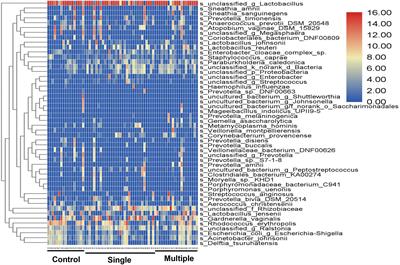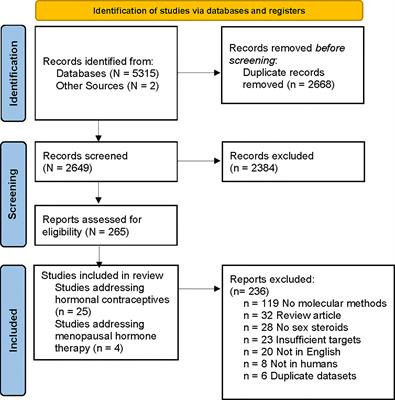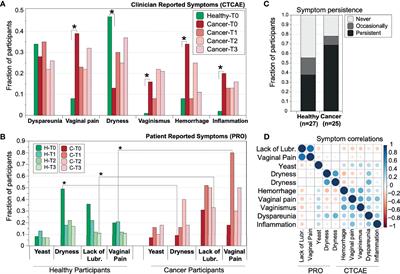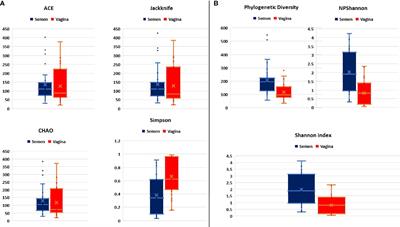ORIGINAL RESEARCH
Published on 19 Dec 2022
The diversity of vaginal microbiome in women infected with single HPV and multiple genotype HPV infections in China

doi 10.3389/fcimb.2022.642074
- 2,862 views
- 10 citations
33k
Total downloads
137k
Total views and downloads
You will be redirected to our submission process.
ORIGINAL RESEARCH
Published on 19 Dec 2022

ORIGINAL RESEARCH
Published on 17 May 2022

ORIGINAL RESEARCH
Published on 04 Mar 2022

REVIEW
Published on 21 Jan 2022

REVIEW
Published on 18 Jan 2022

ORIGINAL RESEARCH
Published on 12 Jan 2022

ORIGINAL RESEARCH
Published on 23 Dec 2021

REVIEW
Published on 17 Dec 2021

ORIGINAL RESEARCH
Published on 29 Nov 2021

ORIGINAL RESEARCH
Published on 12 Nov 2021

ORIGINAL RESEARCH
Published on 27 Oct 2021

ORIGINAL RESEARCH
Published on 01 Oct 2021

